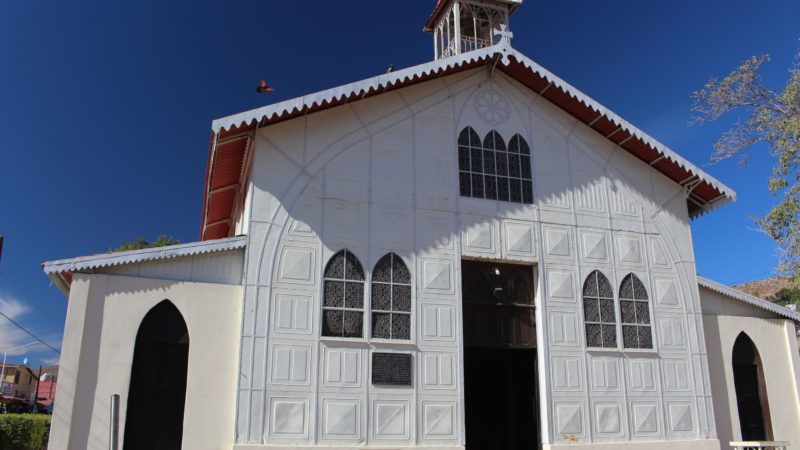California Wants To Carve Out Religious Exemptions to Its Insane Housing Laws
State lawmakers want to override local zoning codes to let churches and other nonprofits build affordable housing on their own land.

California's housing crisis has gotten so bad that state lawmakers are considering a little divine preemption.
Last Friday, state Sen. Scott Wiener (D–San Francisco) introduced Senate Bill (S.B.) 899, which would allow religious institutions—as well as nonprofit hospitals, rehabilitation centers, and nursing homes—to build affordable housing "by right" on land they own.
That means that local planners wouldn't have the discretion to deny these housing projects, and third parties would lose the ability to hold them up with interminable environmental appeals and lawsuits.
"Churches and other religious and charitable institutions often have land to spare, and they should be able to use that land to build affordable housing and thus further their mission," said Wiener in a press release. "SB 899 ensures that affordable housing can be built and removes local zoning and approval obstacles in order to do so."
Wiener's bill would let qualifying nonprofit institutions build housing projects containing at least 40 units on their own land. If that land is located in an area already zoned for commercial or residential use, these nonprofits could build up to 150 units.
Any organizations that take advantage of SB 899 would have to guarantee that the new housing they produce is 100 percent affordable (meaning it's offered at below-market rates to low-income people). That affordability requirement would expire after 45 years for for-sale housing, and after 55 years for rental housing.
S.B. 899 comes on the heels of another piece of legislation—Assembly Bill (A.B.) 1851, sponsored by Assemblymember Buffy Wicks (D–Oakland)—which would eliminate parking requirements for housing projects being built on church land.
As Wiener notes, churches often have spare land in prime locations that would make excellent sites for new housing. Many are also already involved in providing temporary shelter to the homeless. But thanks to zoning restrictions, parking requirements, and lengthy approval processes, many religious institutions are kept out of the housing development business.
One prominent example is the Clairemont Lutheran Church in San Diego, which has been trying to include an affordable housing component to the redevelopment of a dilapidated fellowship hall on its property since 2015. Their plans required building over existing spaces in the church's underutilized parking lot, and that ran afoul of a city code that ties parking requirements for churches to the square inches of pew space that they have.
"Two weeks of the year that parking lot is utilized to the full extent. 50 weeks of the year it's not," says Eddie McCoven, a spokesperson for the Clairemont Lutheran Church.
Thanks to lobbying by Clairemont and other faith-based nonprofits, the San Diego City Council voted in December 2019 to scrap the pew-space-to-parking-space formula and reduce church parking minimums overall.
These local efforts are now being mirrored at the state level with the legislation being introduced by Wiener and Wicks.
McCoven says his church is still in the development process, and he predicts that breaking ground for the housing component of their project is still a couple of years away. The plan, he says, is eventually to build somewhere between a dozen and 20 new affordable units.
McCoven says bills such as S.B. 899 and A.B. 1851 will help other congregations interested in developing affordable housing to spend less time and money on the planning process, and more on actually building homes.
"If this type of legislation was already in place when we were starting this project, we would be a lot further along than we are," he tells Reason. "Any congregation that decides this is something they want to pursue, would probably make it a whole lot easier and a much more streamlined."
Rent Free is a weekly newsletter from Christian Britschgi on urbanism and the fight for less regulation, more housing, more property rights, and more freedom in America's cities.


Show Comments (23)